Europe Day 2017: My #EU60 story, Juan Menéndez-Valdés
Europe Day 2017: Eurofound staff explains what Europe means to them to commemorate the 60th Anniversary of the Treaty of Rome #EU60

Europe Day 2017: Eurofound staff explains what Europe means to them to commemorate the 60th Anniversary of the Treaty of Rome #EU60

The background note for the joint Eurofound and Organisation for Economic Co-operation and Development (OECD) high-level conference on social mobility and equal opportunities in Paris, France on Thursday, 4 May 2017, is published.

Today is EU Day of Solidarity between Generations, an occasion to focus on actions needed to make Europe more age-friendly and better adapted to our ageing population. One of our publications focusing on this issue, Sustainable work throughout the life course: National policies and strategies, is now available to order via the EU Bookshop.
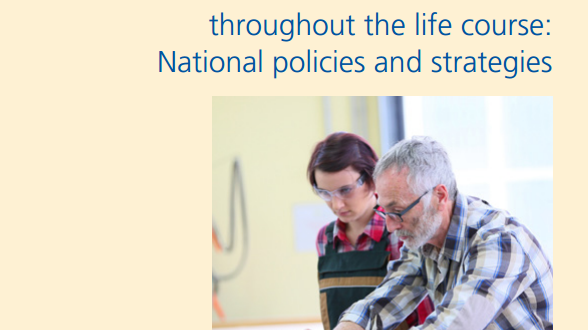
This Friday (28 April) is World Day for Safety and Health at Work. This year's campaign focuses on the need for countries to improve their capacity to collect and utilise reliable occupational safety and health data.

29 April is EU Day of Solidarity between Generations. The objective of this annual celebration is to make the European Union more age-friendly and better adapted to our ageing population, as well as have intergenerational solidarity high on the EU agenda.
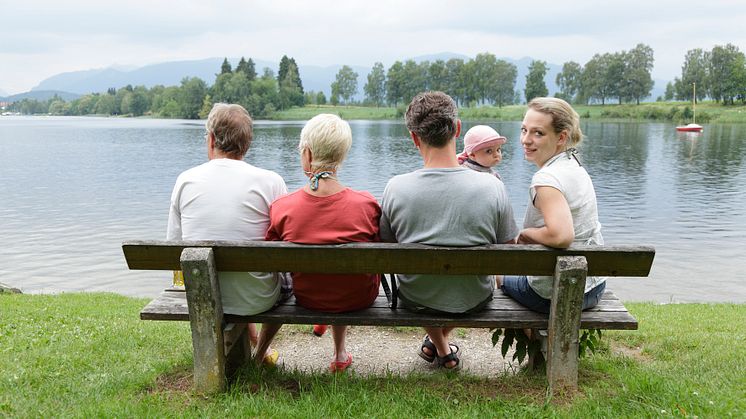
The European Restructuring Monitor (ERM) 2016 report 'Globalisation slowdown? Recent evidence of offshoring and reshoring in Europe' is available to order for free via the EU Bookshop. Go to http://bit.ly/ERMBookshop

The chart above, based on data from the third EQLS, shows the percentage of people who strongly agreed with the statement ‘I am optimistic about the future’ in 2012.
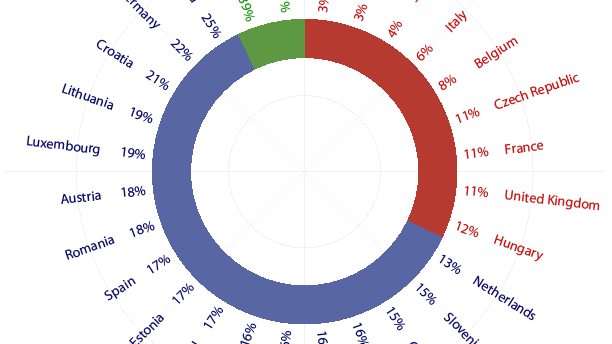
The annual meeting of Eurofound’s correspondents – in the fourth and final year of the current contract – will take place in Dublin on 27–28 March. Guest speaker Raymond Maes, Deputy Head of Unit at the European Commission’s DG Employment, will outline the EU priorities for the coming period.
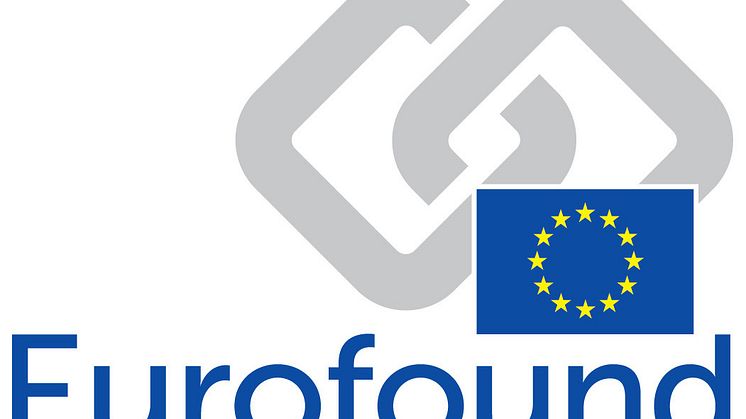
Eurofound is in the process of drawing up a list of academic experts to cover the research areas of its 2017–2020 programme. Experts may be asked to advise on planned research approaches and methodologies or to carry out peer reviews.

Developments in the field of employment and social affairs announced in the European Commission’s work programme for 2017 include initiatives to address the challenges of work–life balance faced by working families, a European Pillar of Social Rights aimed at fostering a fair playing field in the European social market economy, and a White Paper on the Future of Europe.

Eurofound hosted a delegation from the European Parliament’s Committee on Employment and Social Affairs in Dublin on 20–21 February. The delegation included Jean Lambert MEP (Greens/EFA), Joëlle Mélin MEP (ENF), Laura Agea MEP (EFDD), Javi López MEP (S&D), and Lynn Boylan MEP (GUE/ NGL).
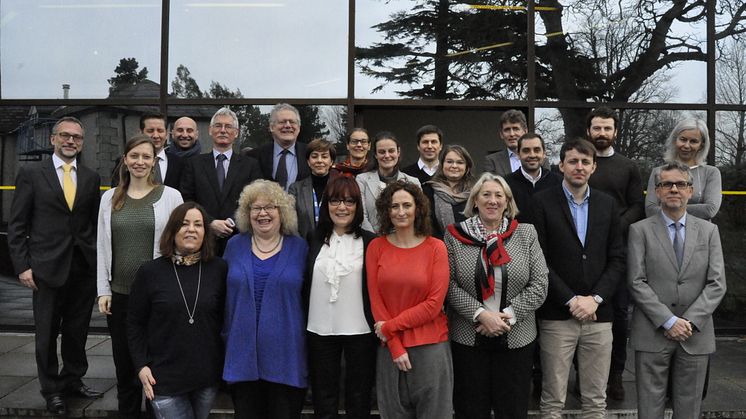
The social partners across Europe are not participating in the European Semester as was originally envisaged, even after the 2015 revamp of the process that aimed to encourage their greater involvement in the drafting of the national reform programmes (NRPs).
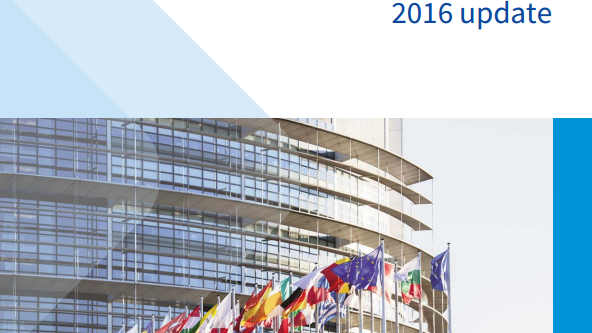
Income inequalities have increased between and within Member States, largely due to growing unemployment levels during the economic crisis.
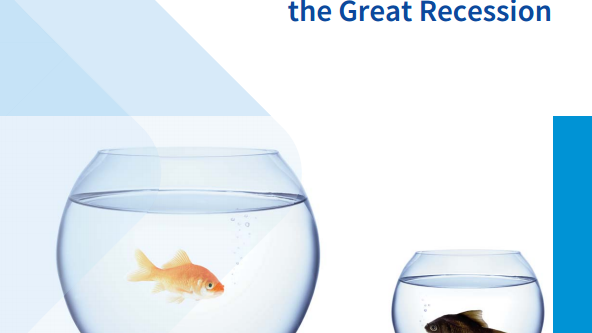
In this blog piece, originally posted on Social Europe, Eurofound researchers Carlos Vacas-Soriano and Enrique-Fernández-Macías look at the development of income inequalities in Europe since the Great Recession.
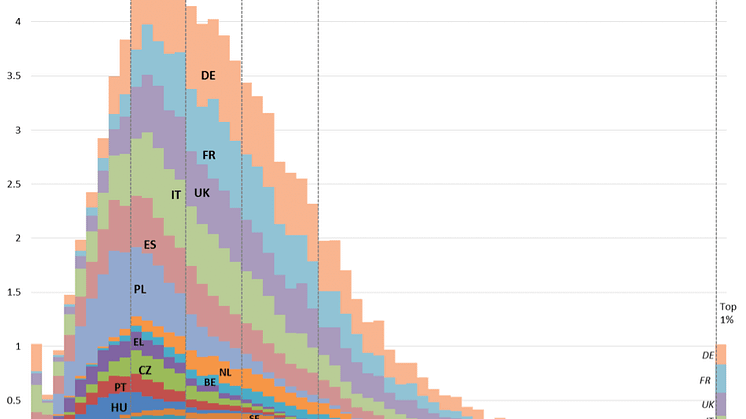
Income inequalities have increased in around two-thirds of EU Member States largely due to growing unemployment levels since the onset of the crisis. At the same time EU-wide income inequality also increased as income convergence between European countries stalled.

On the occasion of International Women's Day, Eurofound Senior Research Manager Massimiliano Mascherini looks at the impact of the gender employment gap on Europe.

The growth in average (nominal) pay of employees has accelerated in recent years in EU countries after a slump following the economic crisis (AMECO data). Similar developments show up in data on collectively agreed wages. However, higher wage growth figures do not automatically mean that all employees benefit equally

The expanding use of digital technologies such as smartphones, tablets, laptops and desktop computers for work for home and elsewhere is rapidly transforming the traditional model of work. It can improve work-life balance, reduce commuting time, and boost productivity, but it can also potentially result in longer working hours, higher work intensity and work-home interference.

The International Labour Organization (ILO) will launch a joint report with Eurofound entitled Working anytime, anywhere: The effects on the world of work, on Wednesday 15 February.
At a time when the use of digital technology is constantly growing, the new research highlights opportunities and challenges of expanding telework. It synthesises research carried out by both organisations in 15 cou

The growth in the level of minimum wages accelerated in the period between January 2016 and January 2017, with the largest increases in newer EU Member States. This continues a trend of slow convergence between minimum wage levels in Europe - however there is still a long way to go, with minimum wage workers in Luxembourg making eight and a half times as much as minimum wage workers in Bulgaria. T
